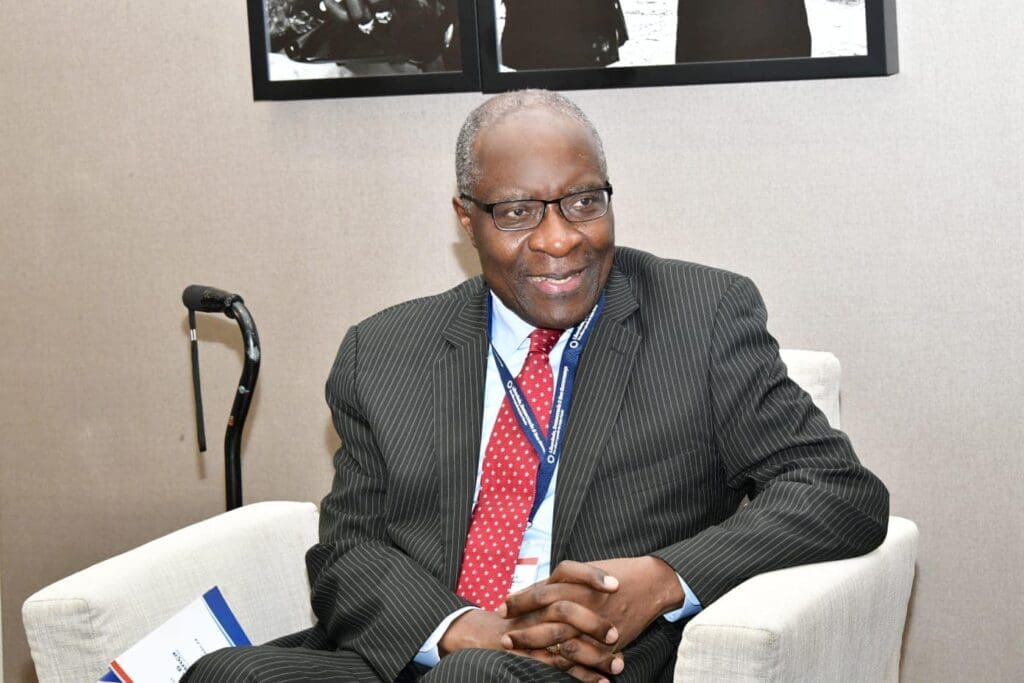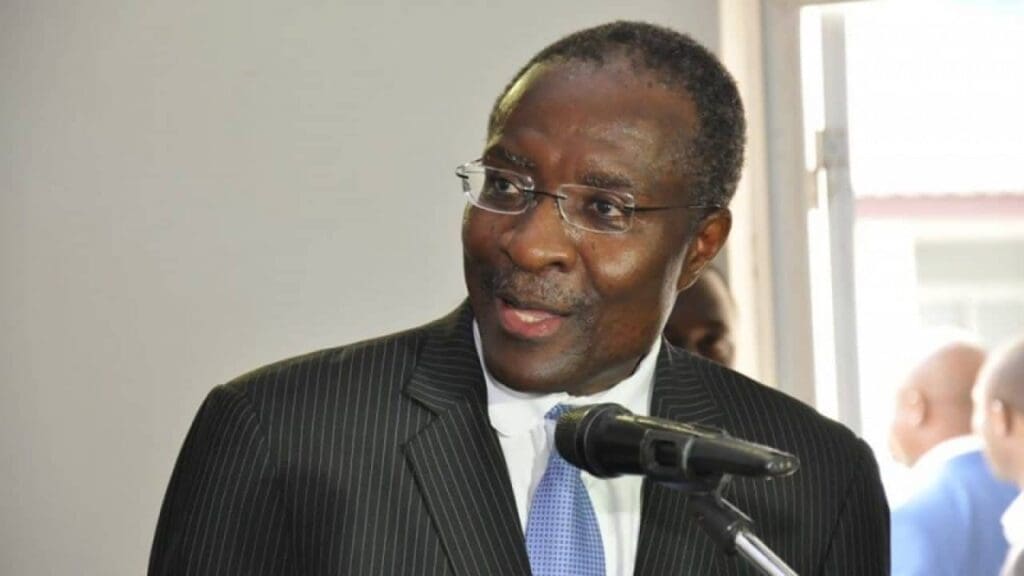|
Cameroon: Breakaway Ministers Reflect Failing System and
Growing Demands for Change - Dr.
Fomunyoh
By Boris Esono Nwenfor
 There is an unquenchable thirst
for change, says Dr
Christopher Fomunyoh, Senior Associate for Africa, Regional Director, and
Special Adviser to the
President at the National Democratic Institute, NDI
There is an unquenchable thirst
for change, says Dr
Christopher Fomunyoh, Senior Associate for Africa, Regional Director, and
Special Adviser to the
President at the National Democratic Institute, NDI
Dr Christopher Fomunyoh, Senior Associate for Africa, Regional Director and
Special Adviser to the President
at the Washington-based National Democratic Institute (NDI), has called on
Cameroonians to seize the
historic opportunity presented by the upcoming 2025 presidential election to
drive meaningful democratic
change through the ballot box.
Speaking in an interview with Cameroon media Equinox, from Washington D.C., Dr.
Fomunyoh weighed in on a wide
range of political developments in Cameroon, including the recent resignations
of high-profile government
figures, the awakening political consciousness of the northern electorate, and
the urgent need for electoral
reforms and opposition unity.
"These resignations are very significant. I consider them very important for at
least three reasons," Dr
Fomunyoh said. "One is that these are cabinet ministers who have served for
decades in the current
government and who understand the failures of the government to meet the
expectations of the Cameroonian
people and who are also now willing to say so very publicly".
"Secondly, these two or three ministers do come from the northern part of the
country, which is an important
electorate which combined constitutes well over 30 per cent of the electorate of
Cameroon. If that
electorate that has previously always voted for the ruling party were now to be
split, it would make it
extremely difficult for the ruling party to have its way as it has done in the
past."
"Thirdly, I believe these resignations and the declarations from the ministers
also coincide with a
generalised criticism of the performance of the CPDM and the fact that Biya, in
particular, has not been
able to accomplish a lot. Now we have people saying that at the grassroots
level, as we've seen from various
populations up in the North and other parts of the country, and we now have
former cabinet ministers willing
to go on record in writing, as well as in their public declarations. So a
combination of these three points
makes me realise how significant these developments are."
 I think it's unbelievable that
anyone who's patriotic, that
anyone who has the future of this country at heart, would want to entrust
that future into the hands of
a 93-year-old great-grandfather, says Dr Fomunyoh
I think it's unbelievable that
anyone who's patriotic, that
anyone who has the future of this country at heart, would want to entrust
that future into the hands of
a 93-year-old great-grandfather, says Dr Fomunyoh
Growing Discontent
Dr Fomunyoh also addressed growing public discontent across the nation,
referencing recent incidents in the
central region, where villagers blocked CPDM militants from holding a meeting,
citing the government's
failure to provide basic infrastructure like roads.
Will Fomunyoh Stand If Called Upon?
"There's a generalised unease. Ultimately, we hope that gets translated through
people turning out and
expressing their voices," Fomunyoh stressed.
"There are certain things that are so obvious that everyone can see and feel.
Everyone can hear the desire
for change across the entire country. There is nothing that can rationalise or
justify someone who is 93
years old, who has been in power for 43 years, and who seeks another seven-year
term. Even people within the
ruling party know that that does not make sense in today's Cameroon, in today's
Africa, and across the
globe."
In perhaps his most direct criticism yet, Dr. Fomunyoh lambasted the idea of
President Paul Biya, aged 93,
seeking another seven-year term after over four decades in power.
"It doesn't make sense… that you're going to entrust that responsibility in the
hands of someone whom you
couldn't even hire to be your driver, or your cook, or your servant. Even people
in government know, because
the last time that there was a ministerial cabinet meeting in Cameroon was years
ago. Some of these
ministers have not had the opportunity to have a working session with their
president. So people know that,"
Fomunyoh said bluntly.
"I think it's unbelievable that anyone who's patriotic, that anyone who has the
future of this country at
heart, would want to entrust that future into the hands of a 93-year-old
great-grandfather."
Change through Ballot Box Not Violence
With Cameroon inching toward the 2025 polls, Dr Fomunyoh emphasised the
importance of peaceful democratic
processes and discouraged any form of violence. "As a committed democrat, if you
believe in democracy, then
you believe in peaceful processes that can lead to meaningful change and that
you will never advocate for
violence. The hope, I believe, is that the conditions be created such that
citizens can express themselves
freely through the ballot process," Dr Fomunyoh said.
"Harassment of civil society organisations should stop so citizens can organise
themselves to be able to
monitor the campaign period and monitor their elections and conduct voter
education, and bring people out to
be able to participate in the electoral process. Security services should not
allow themselves to be
utilised for personal or partisan gain because their responsibility is to
maintain law and order for
everyone on an equitable basis."
Reflecting on a recent visit to San Antonio, Texas, where he met with the
Cameroonian diaspora, Fomunyoh
praised the community's efforts to depolarise, rebuild, and rebrand Cameroon's
image abroad.
"What I saw in San Antonio is a model for what a future Cameroon could look like
once meaningful change comes
about, once the environment and the timing are right for the diaspora to play an
even greater role in
reconciling, rebuilding and rebranding our country."
With the election still months away, Dr. Fomunyoh called on all Cameroonians at
home and abroad to rise to
the occasion. "2025 provides a unique opportunity for all of those voices to be
channelled into the
political process so that your voices can be heard through the electoral
process," Dr Fomunyoh urged. "Let's
rebuild and reform the country and also rebrand Cameroon, not just across the
African continent but on the
global stage."
|

